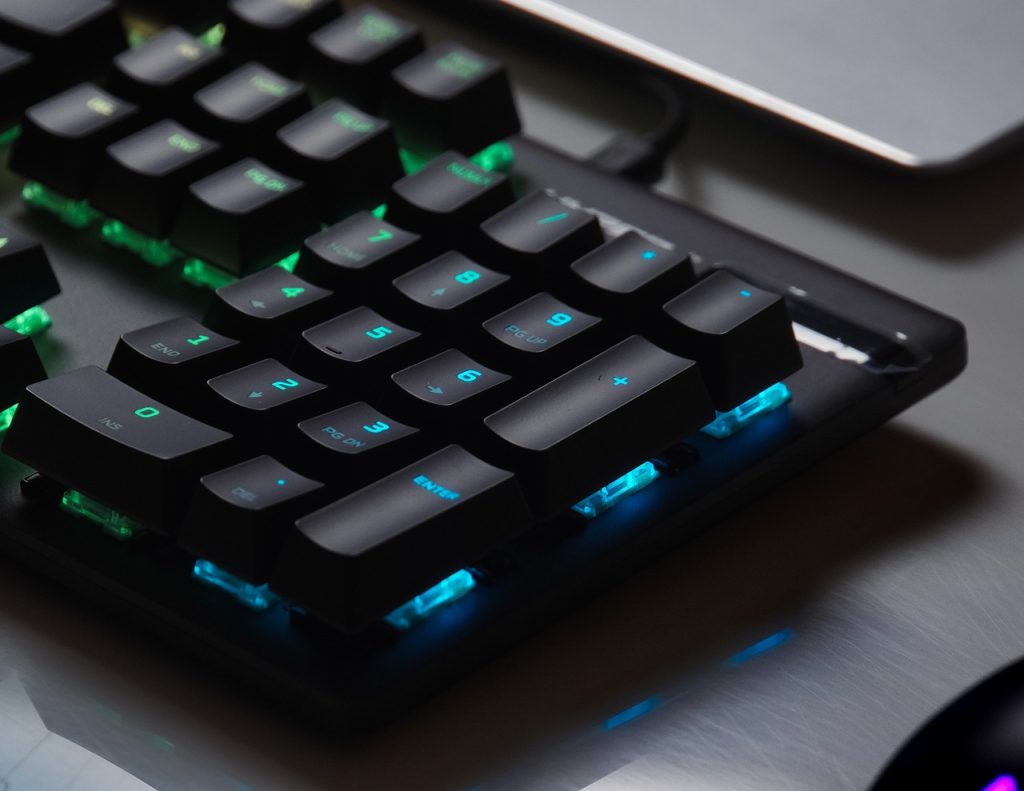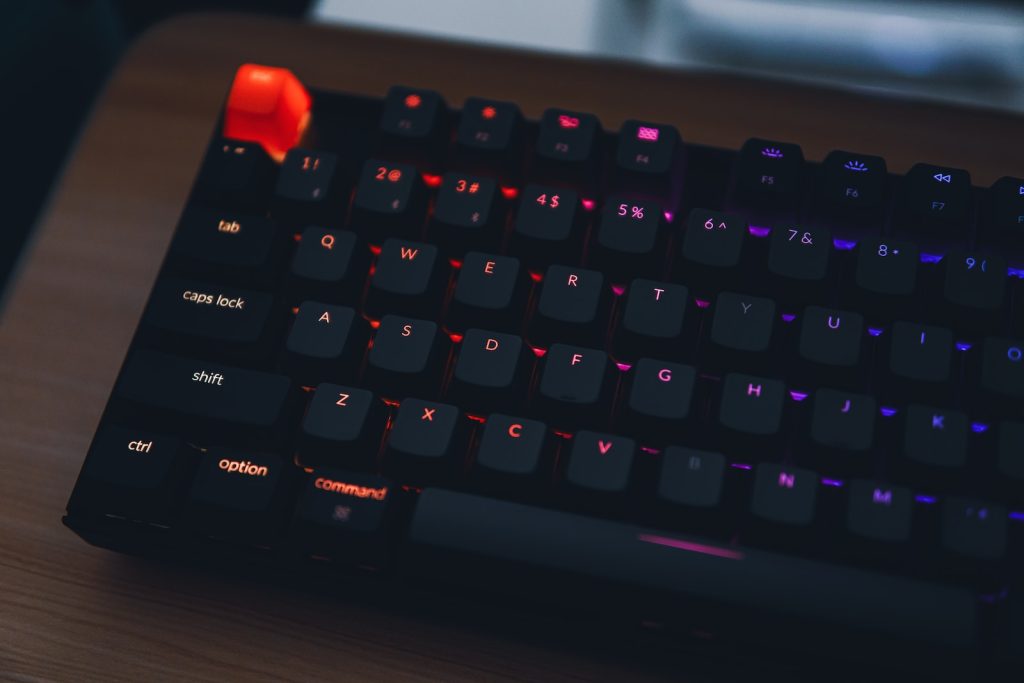When it comes to setting up an efficient and comfortable workspace, the choice of keyboard can be surprisingly influential. Mechanical keyboards have been a consistent favorite for enthusiasts and professionals alike, but does their popularity translate into better performance for work? This expert analysis aims to dissect the practicality of mechanical keyboards in a professional setting.

Understanding Mechanical Keyboards
At their core, mechanical keyboards differ from their membrane counterparts due to individual mechanical switches beneath each keycap. These switches are engineered for consistent and durable performance. But the real question is whether these characteristics make them a superior choice for the workplace.
Tactile Feedback’s Role in Efficiency
The tactile response of mechanical keyboards is often credited for enhancing typing accuracy. The clear physical feedback when a key is actuated can lead to fewer mistakes and potentially faster typing speeds. For professionals whose work is heavy on keyboard use, this can translate to improved productivity and fewer errors.
Longevity and Workplace Reliability
Reliability is a cornerstone of workplace efficiency. Mechanical keyboards are renowned for their longevity, often boasting a lifespan that can handle tens of millions of keystrokes. This durability is not only cost-effective but also ensures that the workflow is not interrupted by equipment failure.
Customizable Comfort in Mechanical Keyboards
Ergonomics and individual comfort are paramount when selecting a keyboard for work. Mechanical keyboards offer a spectrum of switch types — from soft linear movements to tactile bumps to audible clicks — allowing users to choose a keyboard that feels right for their typing style and reduces the risk of repetitive strain injuries.
The Impact on Typing Speed
With mechanical keyboards, the actuation point — where the keystroke is registered — can be reached without fully depressing the key. This can lead to a quicker typing method, saving precious time for those whose workload includes extensive typing tasks.
Auditory Feedback and Concentration
The clicky nature of mechanical keyboards is more than a nostalgic callback to typewriters — it can be a focus mechanism. The sound can provide a rhythm that keeps the mind engaged, potentially aiding concentration, especially in tasks that require sustained attention.
The Ergonomics of Mechanical Keyboards
Mechanical keyboards are often designed with ergonomics in mind. Features such as contoured keycaps and adjustable tilt angles can contribute to a more natural hand position, preventing fatigue during long work sessions.
Mechanical vs Membrane Keyboards in Work Environments
While membrane keyboards are quieter and often more affordable, they generally lack the tactile feedback that mechanical keyboards offer. For many professionals, the responsive nature of mechanical keys can mean quicker adaptation and a more satisfying typing experience.
Considering Noise Levels in Open Offices
Despite their many benefits, mechanical keyboards are typically louder than membrane keyboards, which can be a consideration in open office environments. However, manufacturers have responded with quieter mechanical switches, striking a balance between tactile feedback and noise reduction.
Cost-Effectiveness of Mechanical Keyboards
Mechanical keyboards are an investment. The initial higher cost is offset by their extended lifespan and the potential for improved productivity. In the long run, the investment in a mechanical keyboard can pay off by avoiding the need for frequent replacements and by contributing to a more efficient work process.
The Subtleties of Switch Choices
For those uninitiated in the world of mechanical keyboards, the variety of switch types available can be overwhelming. However, this variety is exactly what can make a mechanical keyboard perfectly suited to any task. The switches, ranging from Cherry MX, Topre, to custom variants, each come with their unique force curves and actuation points, tailored to the touch preference and typing intensity of the user.
The Quiet Achievers
In response to the need for quieter office environments, the keyboard industry has innovated with ‘silent’ mechanical switches that maintain the tactile feedback without the auditory impact. These switches are ideal for shared workspaces where the clatter of keys can be distracting, allowing for the benefits of mechanical precision without the noise.
The Role of Aesthetics in Work Motivation
A sometimes overlooked aspect of mechanical keyboards is the aesthetic value they can add to a workstation. With customizable keycaps and RGB lighting, a mechanical keyboard can transform a mundane desk into a personalized workspace. This level of personalization can enhance motivation and satisfaction with one’s work environment.
Programming Potential for Professionals
For the technically inclined, many mechanical keyboards come with the capability to program macros and customize key functions, which can streamline complex tasks and improve workflow efficiency. This feature can be particularly valuable for those in programming, graphic design, and data analysis fields.
Health and Posture Considerations
Mechanical keyboards can also contribute to better posture and wrist health. With options for split designs and adjustable stands, they encourage a more natural typing position, reducing strain on the wrists and arms. This ergonomic advantage is significant for those who spend long hours typing and wish to avoid the long-term pitfalls of poor hand positioning.
The Versatility for Various Professions
Different professions may require different keyboard functionalities. Writers, for instance, might benefit from the rhythmic feedback of a clicky switch, whereas video editors might prefer silent switches with macro capabilities. The versatility of mechanical keyboards means they can be adapted to the unique demands of various work tasks.
An Eco-Friendly Work Choice?
In an age where environmental considerations are paramount, the durability and repairability of mechanical keyboards also make them a more eco-friendly option compared to disposable alternatives. The ability to replace individual keys and switches means a mechanical keyboard can have a considerably longer life, reducing waste.
The Influence of Mechanical Keyboards on Workflow
As we look closer at the impact of mechanical keyboards on workflow, it’s evident that the benefits extend beyond the individual to the collective output of a team. In environments where precision and speed are valued, mechanical keyboards can contribute to a more streamlined and productive work rhythm. Each keystroke is not just about inputting data but about maintaining a consistent and reliable workflow that can keep up with the demands of a fast-paced work environment.
The Learning Curve
It’s worth mentioning that transitioning to a mechanical keyboard comes with a learning curve. For those accustomed to the soft touch of membrane keyboards, the switch to mechanical can be a significant change. However, this period of adjustment is often short-lived, and many report that once they acclimate to the mechanical layout and feel, they can’t imagine returning to their previous keyboards.

The Investment in Work Wellbeing
Investing in a mechanical keyboard is an investment in one’s work well-being. The design and build are conducive to a healthier workspace, minimizing the risks associated with repetitive strain and promoting better posture. For employers and individuals alike, this focus on health can lead to reduced discomfort and potentially lower health-related absenteeism.
Customization for the Individual
The level of customization is available with mechanical keyboards means that no matter the user’s preferences or requirements, there is likely a configuration that fits perfectly. This customization can range from the tactile response of the keys to the actuation force required, all the way to the ergonomics of the keyboard layout itself. For individual workers, this means the ability to tailor their tools to their specific needs, increasing comfort and efficiency.
Future-Proofing the Workspace
Mechanical keyboards are not just about meeting today’s needs but also about anticipating the workspaces of the future. With advances in technology, the integration of mechanical keyboards with other smart office tools is likely to enhance the work experience further. This forward-thinking aspect makes mechanical keyboards a wise choice for those looking to future-proof their work environment.
The Balance of Cost and Value
While the upfront cost of mechanical keyboards may be higher than that of their membrane counterparts, the value they provide over time can justify the initial investment. When you factor in the longevity, repairability, and potential for increased work output, the return on investment can be significant. This balance of cost versus value is an important consideration for anyone considering a mechanical keyboard for work.
Mechanical Keyboards: A Symbol of Professionalism
Lastly, mechanical keyboards have come to symbolize a certain level of professionalism and seriousness about one’s craft. Whether it’s the investment in quality equipment or the attention to personal work style, a mechanical keyboard on a desk sends a message about the user’s commitment to their work and their tools.
Conclusion:
In conclusion, mechanical keyboards offer a superior typing experience that can enhance work performance through tactile feedback, ergonomic benefits, and customization options. Their durable construction ensures long-term reliability, while programmable features cater to specific professional needs. Despite a higher initial cost, their longevity and the potential for improved productivity present a compelling return on investment. Whether for individual comfort or professional efficiency, mechanical keyboards stand out as a wise choice for those looking to optimize their workspace and embody a commitment to quality and work wellbeing.

Experience is what matters at the end!!
Hi! This is Jacob Jay – founder of Keyboardgear.com! From childhood to adulthood, I’ve always remained passionate about IT, and the revolution in this industry, especially gaming on the PC can’t go out of my way. Since I’m an enthusiastic gamer, and I love to experience various gaming accessories, particularly mechanical keyboards, that really boost my gaming adventure manifolds. So, my nerve cells hit me to transfer my experiences into word form and share with others to identify the ideal keyboards perfectly fit for their gaming modes.
I know very well how hard it is to find the high-quality items available on the internet that ought to be exactly the same as seen as on the screen. But the counterfeiters have ruined the user’s trust. As I have passed all such situations, I’m obliged to deliver the genuinity and express the same as what I am saying.
So, now, I’m working on the mission to provide very helpful and frankly but trustworthy reviews and guides about various mechanical keyboards, mouses, and other gaming accessories as per my personal experiences and sound knowledge.
